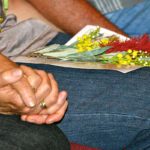Support Service Series - Open Place Victoria
- Oct 27, 2017
- In Features
The Support Service Series showcases Find & Connect Services in each state. Here you can get an idea of what happens after you contact a service, their contact details, some information about them, and what to expect when you apply for records.
Open Place is the Victorian Support Service for Forgotten Australians. It commenced service in January 2010 following significant lobbying and advocacy work from Forgotten Australians themselves, and has 3665 registered service users.
Open Place receives funding from the Victorian Department of Health and Human Services and the Commonwealth Department of Social Services. Open Place provides a range of services which includes records, family searching and family reunion, counselling, support and Royal Commission support. It provides an outreach service to regional and rural parts of Victoria. It is based in Richmond, an inner suburb of Melbourne, with a well-used drop in and activities centre. It also services 13 social and support groups across Victoria.
Open Place provides a daily intake service to all inquiries, whether in person to Open Place, by phone or by e-mail. All intake inquiries are responded to the same working day.
The intake worker will begin the conversation with the question: How can I help you?” The Intake worker will outline the services Open Place can provide and clarify eligibility requirements. The Intake worker will seek basic information from the caller eg name, date of birth and contact details.
All new service users require establishment of Confirmation of Time in Care (COTIC) in order to receive a service from Open Place. COTIC is any documentation that shows time in care. If COTIC is not already available, Open Place, with service user written permission, can seek COTIC on behalf of service user. The service user may already have a COTIC document, in which case Open Place will request a copy. These tasks are undertaken by the Open Place Records team.
Service users accessing Open Place are not required to follow a linear service path, with goals being achieved and then moving in to the next phase of “treatment”. Access to any of the Open Place services occurs at the discretion and decision of the Forgotten Australian. One may decide to pursue counselling before getting their records. Another may initially seek support for a housing application, then assistance with some medical costs before returning for their records. Another may gain their records and sometime later may return for counselling.
The Open Place programs begin with the assumption that ‘something has happened to you”. All of the services at Open Place respond to this “something”; however this is demonstrated and articulated by individual Forgotten Australians. Services are facilitated through a rights based approach; something happened to Forgotten Australians, nothing is wrong with them.
With increased public awareness of issues relating to historical institutional care, more people are seeking access to records about themselves and their family members. Records may fill gaps in knowledge; verify memory, support identity and connection to family. Records seekers may wish to verify memories of events, or support applications for redress.
File redaction and its practice remains a red hot issue for Forgotten Australians. The Senate Report supported the recommendation made in Lost Innocents (about former child migrants) that all organizations holding records …….make these records available immediately and unconditionally (p.281). This position, argued for by Open Place, allows as much information as possible about individuals and their families to be made available. People growing up in their own family will generally know their siblings, their parents and often extended family’s personal details. Knowledge of this information can be considered to constitute an individual’s personal information. In this context, ‘family’ is broadly defined to include parents, grandparents, siblings and half-siblings, aunts, uncles, cousins and step relations of all kinds. Why is this information not considered to be “owned” by the child (now an adult) who has had a “care” experience? The Information Privacy Principles provide the principle of ‘reasonableness’ to govern the release of personal information. It is “reasonable” for Forgotten Australians to know about their family. To deny Forgotten Australians access to this information is to perpetuate institutional abuse.
To Contact Open Place:
Phone: FREE CALL – 1800 779 379
Or (03) 9421 6162
Find and Connect
FREE CALL – 1800 16 11 09
Email: info@openplace.org.au
Address: Suite 1 / 8 Bromham Place
Richmond VIC 3121
–thanks to Simon Gardiner for authoring this post.





